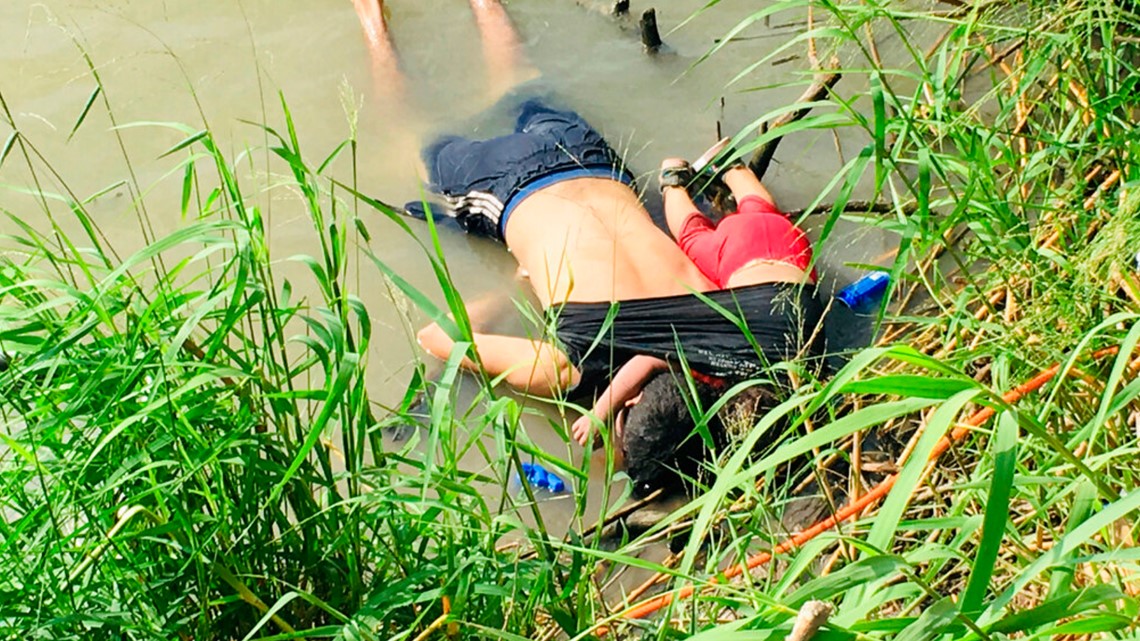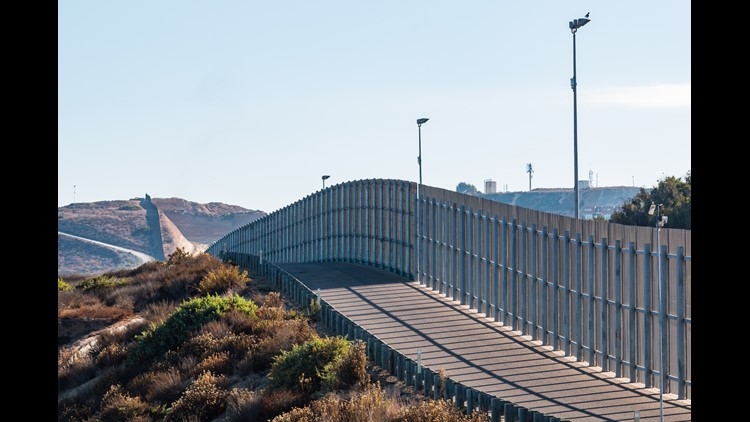MEXICO CITY, Mexico — Editor's note: graphic image in the story below.
The man and his 23-month-old daughter lay face down in shallow water along the bank of the Rio Grande, his black shirt hiked up to his chest with the girl's head tucked inside. Her arm was draped around his neck suggesting she clung to him in her final moments.
The searing photograph of the sad discovery on Monday, captured by journalist Julia Le Duc and published by Mexican newspaper La Jornada, highlights the perils of the latest migration crisis involving mostly Central Americans fleeing violence and poverty and hoping for asylum in the United States.


From the scorching Sonora desert to the fast-moving Rio Grande, the U.S.-Mexico border has long been an at times deadly journey for those who cross it illegally between ports of entry.
In recent weeks alone, two babies, a toddler and a woman were found dead on Sunday, overcome by the sweltering heat. Elsewhere three children and an adult from Honduras died in April after their raft capsized on the Rio Grande, and a 6-year-old from India was found dead earlier this month in Arizona, where temperatures routinely soar well above 100 degrees Fahrenheit.
"Very regrettable that this would happen," Mexican President Andres Manuel Lopez Obrador said Tuesday in response to a question about the photograph. "We have always denounced that as there is more rejection in the United States, there are people who lose their lives in the desert or crossing" the river.
According to Le Duc's reporting for La Jornada, Óscar Alberto Martínez Ramírez, frustrated because the family from El Salvador were unable to present themselves to U.S. authorities and request asylum, swam across the river with his daughter, Valeria.
He set her on the U.S. bank of the river and started back for his wife, Tania Vanessa Ávalos, but seeing him move away the girl threw herself into the waters. Martínez returned and was able to grab Valeria, but the current swept them both away. The account was based on remarks by Ávalos to police at the scene.
Their bodies were discovered Monday morning on the bank of the river near Matamoros, Mexico, across from Brownsville, Texas, and several hundred yards (meters) from where they had tried to cross, just a half-mile (1 kilometer) from an international bridge.
The photo recalls the 2015 image of a 3-year-old Syrian boy who drowned in the Mediterranean near Turkey, though it remains to be seen whether it may have the same impact in focusing international attention on migration to the U.S.
U.S. policy has drastically reduced the number of migrants who are allowed to request asylum, down from dozens per day previously to sometimes just a handful at some ports of entry.
The United States has also been expanding its program under which asylum seekers wait in Mexico while their claims are processed in U.S. courts, a wait that could last many months or even years.
This week the city of Nuevo Laredo in Tamaulipas, the same state where Matamoros is located, said it will become the latest city to receive returnees as soon as Friday.
Many migrant shelters are overflowing on the Mexican side, and cartels hold sway over much of Tamaulipas and have been known to kidnap and kill migrants.
Meanwhile, Mexico is stepping up its own crackdown on immigration, with much of the focus on slowing the flow in the country's south.
"With greater crackdowns and restrictions," said Cris Ramón, senior immigration policy analyst at the Bipartisan Policy Center think tank in Washington, "we could see more desperate measures by people trying to enter Mexico or the U.S."



